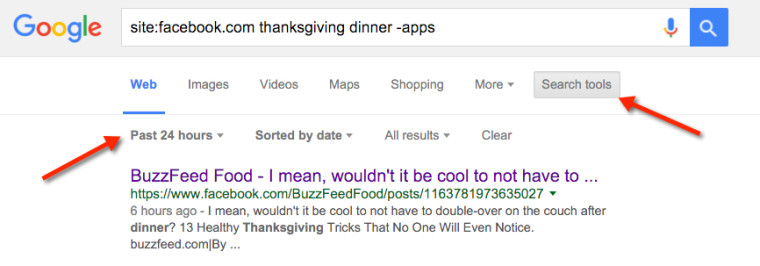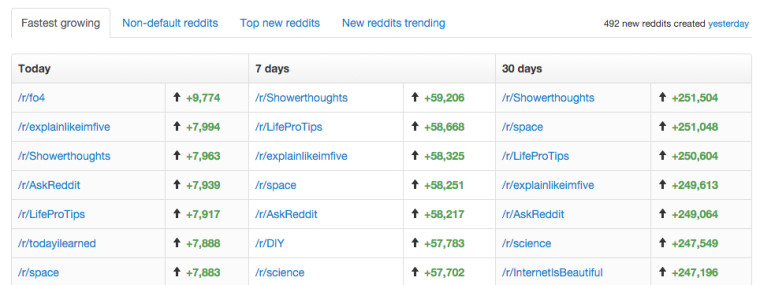
Virtually everyone who creates content wants someone to see it, read it, and hopefully engage with it. The desire is so strong in fact, that we have an entire industry dedicated to accomplishing that goal: Content Marketing.
We have learned over time that just because an article is visible, doesn’t mean people are actually reading and engaging with it, which is ultimately our true goal.
You have likes, shares, visits, and other metrics, to help you determine the success of your content, but ultimately it is comments that really tell us how engaged people are.
When someone comments on an article, site, or forum, they are entering into a discussion about a specific topic, with the goal to discuss it further or learn more about it. So, participating in comments can be a very effective way of presenting someone useful content at the time when they are most likely to consume or engage with it.
I know what you’re thinking already… ‘Oh great, is he really suggesting we comment spam?’ Of course not! Like any tactic, using it incorrectly will result in little to no real success, and more often than not result in some sort of penalty. This is also the case with content creation, linkbuilding, on-page SEO, etc.
That said, there are a lot of opportunities to effectively market your content in comments, which is what I want to talk about here.
Facebook, LinkedIn, Google+, etc
Most social sites out there have updates, where you have the ability to respond to those updates with discussion points, and when relevant, links to related content. I typically like to combine both of these angles, by providing a related and helpful URL, but then also quoting the elements I think is most important to the existing conversation.
This provides the important elements needed to bring value to the conversation without requiring anyone to visit the URL, but allows the URL to be there for those who want more context, which is also likely to be the ones you really want reading the content anyhow.
I also never force a URL to fit. The goal is not to find some loosely related topic and then stretch your participation for the sake of making a URL fit, but rather to find conversations that could truly benefit from the URL and comments you would add.
Tip: You can do Google searches, such as ‘site:facebook.com topic of interest’and then use Search Tools > Last 24 hours, to identify recent opportunities.

Tip: For LinkedIn, you can also select the drop down menu next to their search box and then select Posts. Enter your desired topic and then sort by recent posts, to find recent opportunities around topics of interest.

Tip: Searching on Google+ will bring up the ‘best of’ articles for any searched topic, with an option to sort by ‘most recent’ as well. Also, clicking on Explore and checking the Trending topics, is a great way to find posts trending and everyone clicking on those trends have the potential to see your additions to the discussion.

Twitter is slightly different, as they don’t really have a comments sections, but they do connect @replies into a sort of thread, which can be viewed by all people reading the tweets.
One thing I like to avoid on Twitter is identifying tweets through #hashtags, although I know a lot of people will disagree with me on this. I feel that #hashtags is too overly spammed, so instead, I like to make lists of people who are authorities in topics I have content around, so that when I see conversations relating to topics I have something to contribute, it is more natural and not associated with some #hashtag bandwagon spamming.
Tip 1: Try using tools like Klout, ManageFlitter, and others, to identify people of authority in your area of topic.
Tip 2: Check for people who have blogs, are bloggers, or journalists.
Tip 3: Review each individual’s timeline, to determine if they have a habit of engaging, liking, or retweeting.
Blogs
This is always something you have to be super cautious with, as blog owners and other readers are very sensitive to people putting links in their comments, but if done right, I have seen this lead to updated posts that actually reference the link provided in comments.
Again, this should be implemented with extreme caution and with a very high bar for quality, but it is very effective when it fits the article and discussion.
Tip: Check out Google News for Top Stories, to see if anything currently trending is related to your content.
Quora, Wiselike, and Other Answer Sites
This is probably one of the best places for content marketing through comments, as people on these sites are specifically looking for information.
It is still very important to be on topic and relevant, as you want to make sure that the people looking for answers are finding the answer in whatever you are providing.
Tip 1: Avoid adding any URLs that do not provide a unique answer or discussion point.
Tip 2: Set up tracking to try to make sure your answer or contribution is provided quickly after the question is asked.
Tip 3: Share your answer socially, as it not only allows you to further share the information you provided, but many answer sites sort based on popularity, so it never hurts to get some extra votes on your answer.
Tip 4: Here are some tips from a top Quora user on how to have more success.
One of the most under-rated and scariest social media sites for marketers, Reddit has a lot of opportunity for content marketing in the comments. In fact, there are a number of Subreddits dedicated to crowdsourcing information, such as /r/findfashion/, /r/Thrifty/, and /r/frugalinteriordesign/.
WARNING: Reddit is completely unforgiving, so you have to identify the right subreddits and the right way of commenting when including a URL.
Tip: Use sites like Redditmetrics.com, to identify the best subreddits for your topics.

Tip: Read the rules to make sure nothing prohibits URLs in comments and review the subreddit extensively, to see if the practice is accepted or not.
Forums
Most people have completely forgotten about forums, but if you ever check into your contents link portfolio, I am sure you will find a number of them coming from various forums.
Forums continue to thrive, but they do require you become a member of the community to really have any chance of marketing your content within them. Some forums even require you have a certain number of posts before you can even leave URLs in your comment.
Tip: Check out thebiggestboards.com, to find the largest and most popular boards to participate in.
Tip: If you are on a niche forum, try creating an article or two that would appeal to everyone in the community, and then link it in your footer instead of actually linking in comments.
Tip: Participate on the forum for a while before trying to leave any URLs in comments.
Research
Regardless which sites you decide to focus on, I would HIGHLY suggest making an effort to establish yourself on that site and to research the most accepted and common forms of discussion engagement.
Not having an understanding of the site’s discussion etiquette and having a profile that is incomplete and not very active will make you look questionable when participating.
Be Smart
There is a fine line between marketing and spamming. Often people who have no intention of spamming are doing so, simply by not taking the time to understand the subtle, or not so subtle, differences.
If you do not know what you are doing, then I would highly suggest avoiding the above detailed tactics, as they are intended for people who have experience in marketing.
Your Thoughts?
I would love to hear your thoughts about content marketing through comments in general, as well as about any other sites, tools, or tactics I missed above.
Image Credits
Featured Image: Image by Paulo Bobita
In post images screenshot by author
In post images screenshot by author
To view the original article Click Here

No comments:
Post a Comment